Politics
NEGLECTING LIVESTOCK FARMING IN THE PAST WAS A MISTAKE THAT SHOULD NOT BE REPEATED, SAYS PRESIDENT TINUBU
Published
3 months agoon
By
Ekwutos Blog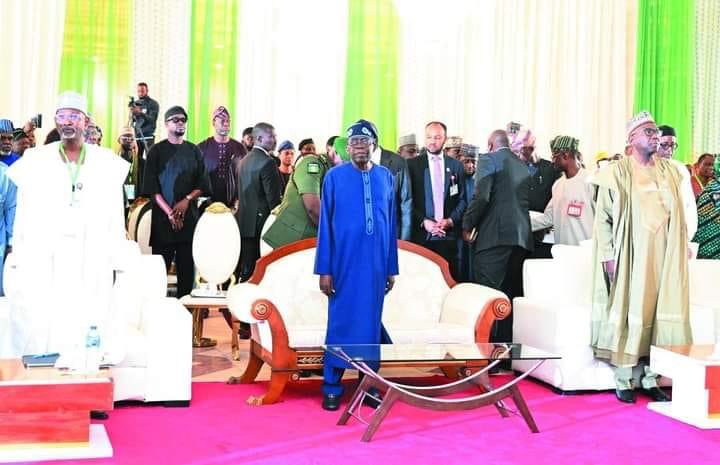
STATE HOUSE PRESS RELEASE
NEGLECTING LIVESTOCK FARMING IN THE PAST WAS A MISTAKE THAT SHOULD NOT BE REPEATED, SAYS PRESIDENT TINUBU
President Bola Tinubu, speaking in Abuja, reassured the public that past mistakes, such as neglecting livestock farming and relying on dairy imports, will be avoided. He pledged a robust framework to stimulate prosperity in the sector, instilling confidence in his commitment.
The President, who opened a two-day Consultative Workshop on Livestock Reforms on Thursday at the State House Conference Centre, pledged government support in revamping and repositioning the sector to create employment and attract foreign Direct Investment (FDI).
“The livestock sector is critical, and we will give all it needs to bring value to our country. Stakeholders, I assure you that you will not regret the collaboration and investment in this sector.
“It is about time that we do it right. A country of over 200 million people and cannot serve our children one pint of milk in a classroom per day? That is not right.
“We didn’t see the investment opportunities. We didn’t see the economy of livestock in the past. Now that we have seen it, we must work together to restart the sector,’’ he said.
President Tinubu commended the Presidential Livestock Reform Implementation Committee, led by the Co-Chairman, Prof. Attahiru Jega, and the Secretary, Prof Muhammed Yahaya Kuta, for their commitment to repositioning the livestock sector.
“Our shared mission is clear: we aim to transform the livestock sector from its current subsistence model into a thriving, commercialised industry, an industry that significantly contributes to Nigeria’s Gross Domestic Product and provides decent jobs and sustainable livelihoods for our growing population.
“The potential is immense: With 563 million chickens, 58 million cattle, 124 million goats, 60 million sheep, and 16 million pigs, Nigeria is the leading livestock producer in West Africa. Yet, despite this vast resource, we face stark realities.
“Our annual production of animal-source foods, like milk at 0.7 billion litres, meat at 1.48 million Tonnes and eggs at 0.69 million metric Tonnes, falls far short of our needs. Our per capita consumption levels—8.7 litres of milk, 9 kg of meat, 3.5kg or 45 eggs per year—are troublingly low compared to global averages. These are 44 litres of milk, 19 kg of meat and between 160 and 180 eggs per year.
“What is more worrisome to me is the average milk yield by cow breeds managed by our pastoralists: it is a mere 0.5 to 1.5 litres per day, compared to a global average of 6.6 litres per day. We can do much better!
“The long-term neglect of the livestock sector has weighed heavily on the country’s import bills, with milk and dairy products accounting for $1.2-1.5 billion.
“Yes, we can do it. We can bring prosperity to our people. We can feed our children. From grass, we can achieve grace. We can contribute so much to the Gross Domestic Product (GDP) and provide decent jobs,’’ the President noted.
President Tinubu also thanked the Nigerian Governors Forum, NGF, chaired by the Governor of Kwara State, Abdurrahman Abdulrazaq, for supporting the reform of animal farming in the country.
“Your Excellency, Chairman of the NGF, Abdulrazaq, thank you for assuring C-of-Os and other instruments from other areas. I also know that the Etsu Nupe, Alhaji Yahaya Abubakar, with the vast land in his domain in Niger State, will accommodate many investors.
“We didn’t see the cold room investment. We didn’t see that opportunity before now. But it is coming. We are going to give it all it takes.
“The opportunity is there; when I inaugurated the Presidential Livestock Reform Committee, I didn’t see the path clearly until they started working. Thank you, Prof Attahiru Jega,’’ the President stated.
President Tinubu also acknowledged Abdullahi Ganduje, Chairman of the All Progressives Congress (APC), for nurturing the idea of reforming the livestock stock, Nuhu Ribadu, national security Adviser, and Nyesom Wike, FCT minister, for their commitment to realising the dream.
“We can create a vivid picture of the future we want to see; it’s the future of our country. The economic opportunities for our children, and with that effort, we can say God bless Nigeria,’’ he stated.
The Chairman of NGF, Abdulrahman Abdulrazak, assured of the “100 per cent buy-in of the subnational to make the reform a success because it is not just food security, but national security.’’
Abdulrazaq thanked President Tinubu for leading the initiative by chairing the implementation committee, regretting that past efforts in the same direction were reduced to files in the Ministries of Agriculture in states and local councils due to lack of political will.
He said each state should create a segment for livestock farming and extend the value chain to meat and dairy production.
The Minister of Agriculture and Food Security, Sen. Abubakar Kyari, thanked the President for his “bold action, exemplary leadership and unparalleled commitment to livestock reform.’’
Kyari assured of working with the Ministry of Livestock Development to realise the president’s vision to diversify the economy and empower more Nigerians.
Bayo Onanuga
Special Adviser to the President
(Information & Strategy)
October 24, 2024
You may like
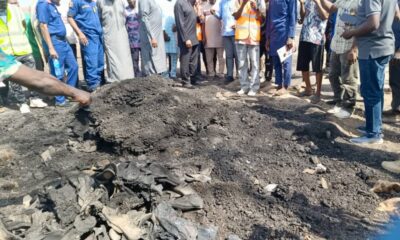

Niger Explosion: Governance must prioritize human lives through proactive policies – Peter Obi


What Speed Darlington posted on Instagram after release from prolonged detention
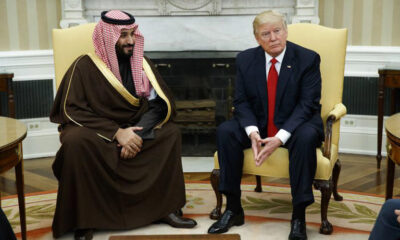

Saudi crown prince says kingdom intends to invest billions in US during call with Trump


The 10 most valuable left-backs in world football in 2025: Calafiori, Gvardiol, Balde…


Abia Govt Begins Major Crackdown On Street Trading, Road Obstructions In Aba


Globacom CEO Ahmad Farroukh resigns after one month amid governance challenges
Politics
Niger Explosion: Governance must prioritize human lives through proactive policies – Peter Obi
Published
3 hours agoon
January 23, 2025By
Ekwutos Blog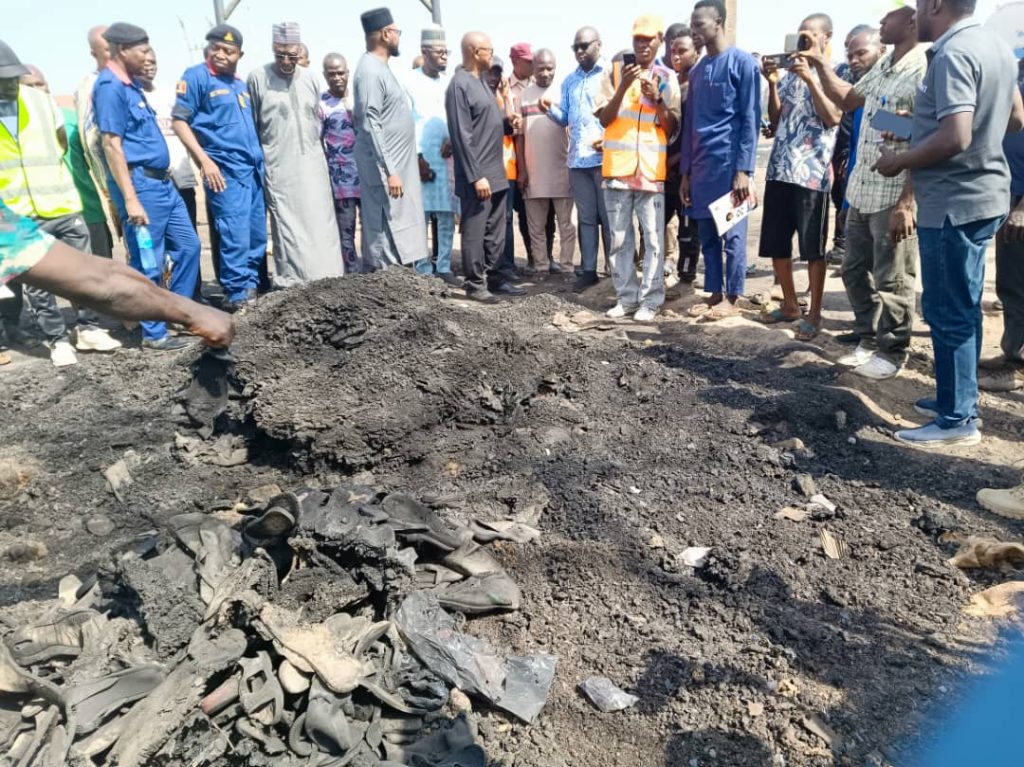
Peter Obi, former governor and 2023 presidential candidate, has called for urgent safety measures to prevent recurring disasters like the tragic petrol tanker explosion that claimed over 100 lives in Suleja, Niger State.
Obi made this appeal during his visit to the site of the explosion, the gravesite, and the Sarkin Dikko palace along the Dikko-Maje Road.
“Today, emotion took the greater part of me as I left Lagos this morning and headed to the site of the tragic petrol tanker explosion, the gravesite, and also the Sarkin Dikko place along the Dikko-Maje Road in Suleja, Niger State, where over 100 lives were lost, more than 50 injured, and many properties destroyed,” Obi shared on his official X handle on Wednesday.
At the explosion site and the graveyard, where 80 victims were buried, Obi expressed sorrow over the preventable tragedy.
He also visited some of the injured victims at the hospital, offering them support and encouragement.
“These recurring disasters call for urgent safety measures: repairing roads, more enlightenment of tanker vehicle operators, investing in healthcare, and lifting people out of poverty to prevent such heartbreaking losses,” he added.
Obi extended his condolences and solidarity to the Dikko community during his meeting with Sarkin Dikko and his council.
He revealed the importance of proactive governance to safeguard human lives.
“Human lives are invaluable, and governance must prioritize their protection through proactive policies,” he stated.
“Together, we can ensure such tragedies become a thing of the past,” he said.
Politics
Saudi crown prince says kingdom intends to invest billions in US during call with Trump
Published
4 hours agoon
January 23, 2025By
Ekwutos Blog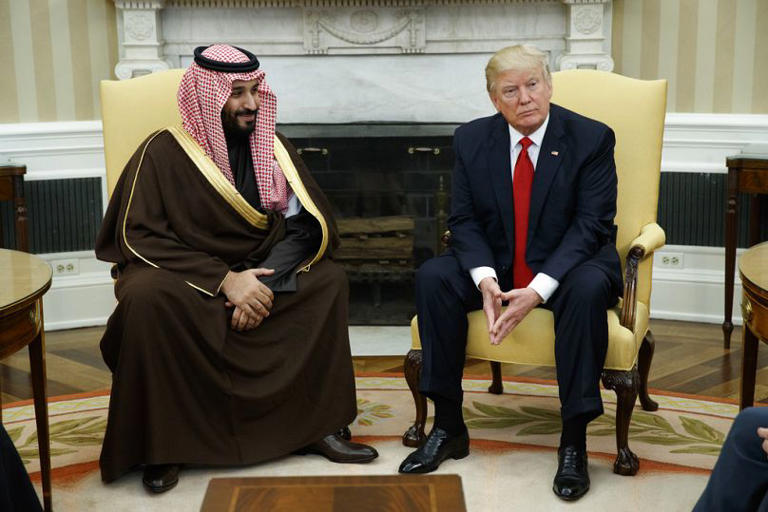
Saudi Arabia’s crown prince said on Thursday that the kingdom wants to invest $600 billion (€576 billion) in the United States over the next four years after a phone call with US President Donald Trump.
Crown Prince Mohammed bin Salman’s comments come after Trump mused about returning to Saudi Arabia as his first foreign trip back in office.
State-run Saudi Press Agency said, “the crown prince affirmed the kingdom’s intention to broaden its investments and trade with the United States over the next four years, in the amount of $600 billion (€576 bn), and potentially beyond that.”
The agency did not elaborate on exactly how the money would be spent.
During their conversation, the two also reportedly discussed ways the two countries could cooperate to establish peace, security and stability in the Middle East.
There was no immediate response from the White House regarding the call. It also wasn’t clear whether Trump’s call with the crown prince was his first with a foreign leader since returning to the Oval Office.
However, it was his first reported abroad.
Trump’s relationship with Saudi Arabia
After his inauguration, Trump talked about the possibility of heading to the kingdom again as his first foreign trip, like he did in 2017.
“The first foreign trip typically has been with the UK but… I did it with Saudi Arabia last time because they agreed to buy $450 billion (€429 bn) worth of our products,” Trump told journalists in the Oval Office.
“I think I’d probably go (again),” the recently inaugurated leader said.
In recent years, the US has increasingly pulled away from relying on Saudi oil exports — once the bedrock the relationship between the two nations.
Trump maintained close relations with Saudi Arabia, even after the crown prince was embroiled in controversy after he was implicated in the 2018 murder of Washington Post columnist Jamal Khashoggi in Istanbul.
The billion dollar pledge, which dwarves the gross domestic product of many nations, comes as the kingdom faces budgetary pressures of its own. Global oil prices remain depressed years after the height of the coronavirus pandemic, affecting the kingdom’s revenues.
Meanwhile, the crown prince has continued to invest in NEOM, a new city in the Saudi Arabian desert. The country also needs to build tens of billions of dollar’s worth of new stadiums and infrastructure ahead of the 2034 FIFA World Cup, which it is hosting.
Politics
Zelensky dampens hopes Trump could strike peace deal with Putin
Published
23 hours agoon
January 22, 2025By
Ekwutos Blog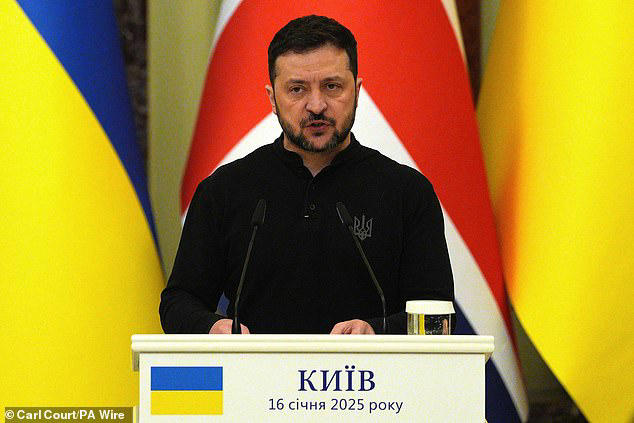
Volodymyr Zelensky has insisted that Ukraine will never recognise occupied Ukrainian territories as being part of Russia, even if pressured to do so by allies, dampening hopes that Donald Trump may be able to strike a peace deal.
‘No matter what anyone wants, even if all the allies in the world unite, we will never recognise the occupied territories [as part of Russia]. This is impossible,’ the Ukrainian president emphasised.
‘We will not legally recognise them. For us, they will always remain occupied territories until we liberate them.’
Trump, who took office for a second term on Monday and was last in power before Russia launched its full-scale invasion of Ukraine, has repeatedly said he could end the war swiftly, without specifying how.
His newly-appointed Secretary of State Marco Rubio said on Tuesday that ending the war was a priority for the president, but would only be possible if both sides make significant concessions.
‘Anytime you bring an end to a conflict between two sides, neither of whom can achieve their maximum goals, each side is going to have to give up something,’ he told CNN, adding that ultimately the decision would be down to the Ukrainians and Russians.
It comes after Russian Deputy Foreign Minister Sergei Ryabkov said today that Moscow sees a small window of opportunity to forge agreements with the new US administration.
‘We cannot say anything today about the degree of the incoming administration’s capacity to negotiate, but still, compared to the hopelessness in every aspect of the previous White House chief (Joe Biden), there is a window of opportunity today, albeit a small one,’ Ryabkov said, according to Interfax.
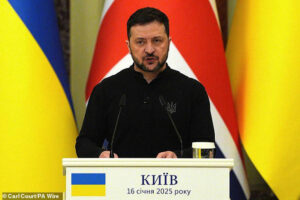
Volodymyr Zelensky has insisted that Ukraine will never recognise occupied Ukrainian territories as being part of Russia
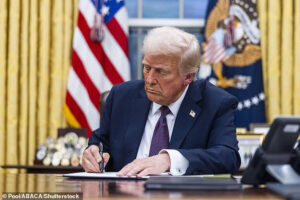
Donald Trump, who took office for a second term on Monday, has said he could end the war swiftly, without specifying how
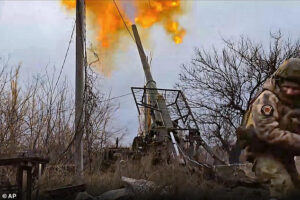
A Russian soldier fires a self-propelled gun
‘It’s therefore important to understand with what and whom we will have to deal, how best to build relations with Washington, how best to maximise opportunities and minimise risks,’ he said, speaking at the Institute for US and Canadian Studies, a think-tank in Moscow.
Trump warned on Tuesday that he would likely impose more sanctions on Russia if President Vladimir Putin refused to negotiate to end the nearly three-year-old conflict.
He gave no details on the possible additional sanctions on Russia, which is already under significant Western sanctions over the war.
The new president also issued a blow to the Kremlin on Tuesday, accusing Putin of ‘destroying Russia‘ with his failed war as he urged him to ‘make a deal’ to end the conflict.
‘He has to make a deal. I think he is destroying Russia by not making a deal,’ Trump said in a stark warning to the dictator.
‘I think Russia is going to be in big trouble,’ he added, saying that Putin ‘can’t be thrilled that he’s not doing so well.’
‘I mean, he works hard, but most people thought the war would be over in about a week, and now it’s been three years, right?’
The Russian economy was sinking, he went on, with inflation a major threat.
Putin, 72, earlier said he was ready to engage with Trump but still insisted on an outcome favouring Russia.
‘We are open to dialogue with the new US administration on the Ukrainian conflict. The most important thing here is to eliminate the root causes of the crisis,’ said the Russian ruler. An initial phone call is expected by Moscow to take place soon.
Trump said Zelensky was ready for a deal to halt the debilitating conflict, and the 78-year-old US leader said he planned to meet Putin with whom he had a ‘great relationship’ during his first term.
‘We’re going to try to do it as quickly as possible. You know, the war between Russia and Ukraine should never have started.’
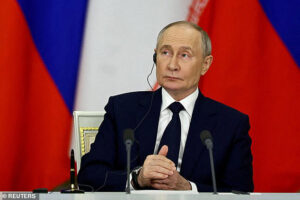
Trump warned on Tuesday that he would likely impose more sanctions on Russia if President Vladimir Putin refused to negotiate to end the nearly three-year-old conflict
After months of Ukraine occupying parts of Russia’s Kursk region as it aims to improve its position in the event of talks, Zelensky stated that any dialogue could only go ahead with Kyiv in a position of strength.
‘Putin cannot be treated as legitimate in this situation. He has violated everything. He must understand his transgression,’ the Ukrainian president said today, adding that if Putin was ‘approached as an equal – that would be a loss for Ukraine.’
But, he said, his government’s top priority was to find a way to halt the war, which has claimed the lives of at least 43,000 Ukrainian soldiers, according to figures released by Ukraine in December.
‘We must find all possible ways to end the hot phase of the war. This is the number one issue,’ Zelensky said.
‘There can be many talks, but the main goal is to stop the active phase. This is the first guarantee of security.’
Russia has occupied Crimea since its 2014 invasion of the territory. Months later it took large parts of the Donbas region, launching a was under the guise of a separatist uprising.
Since the full-scale invasion in 2022, Russian forces have controlled large swathes of southern and eastern Ukraine.
Meanwhile, since a surprise attack in August, Kyiv’s forces occupy around 600 sq km of Russian territory.

Niger Explosion: Governance must prioritize human lives through proactive policies – Peter Obi

What Speed Darlington posted on Instagram after release from prolonged detention

Saudi crown prince says kingdom intends to invest billions in US during call with Trump
Trending
- Politics11 months ago
Nigerian Senate passes Bill seeking the establishment of the South East Development Commission.

 Business11 months ago
Business11 months agoInflation hits record high of 29.90% on naira weakness

 Politics8 months ago
Politics8 months agoBREAKING: Federal Gov’t Offers To Pay Above N60,000, Reaches Agreement With Labour

 SportsNews11 months ago
SportsNews11 months agoOlympic Qualifiers 2024: CAF Confirms Dates For Super Falcons Vs Banyana Banyana

 Trending3 months ago
Trending3 months agoNYA demands release of ‘abducted’ Imo chairman, preaches good governance
- Business3 months ago
US court acquits Air Peace boss, slams Mayfield $4000 fine

 Politics11 months ago
Politics11 months agoGovernor Hope Uzodinma’s New Cabinet In Imo: The Gainers, The Losers

 Politics3 months ago
Politics3 months agoMexico’s new president causes concern just weeks before the US elections

